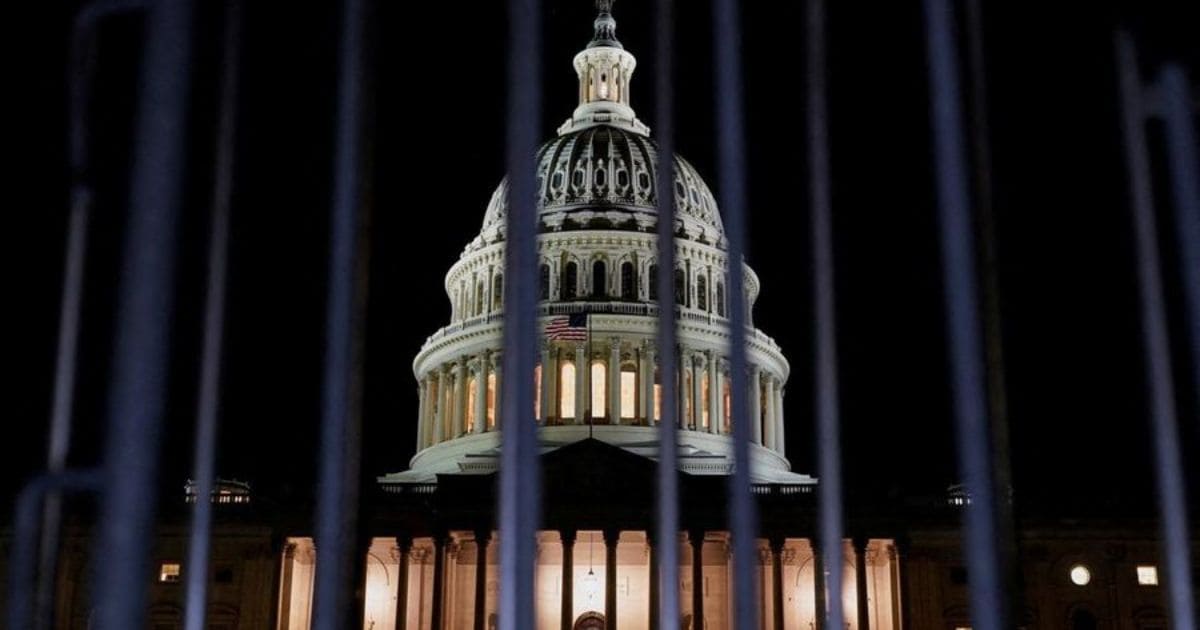United States of America / USA. The political deadlock in the United States Congress resulted in a temporary shutdown of the federal government , Wednesday (1/10/2025) early morning local time.
The failure of Republicans and Democrats to agree on a budget by the deadline has left millions of Americans facing uncertainty, from federal workers at risk of losing income to markets threatened by the loss of vital economic data.
Hundreds of thousands of federal government employees are expected to be furloughed or temporarily laid off. However, some deemed “essential” will remain without pay until the political impasse is resolved.
This situation is considered to be getting worse because the Trump administration is now asking federal agencies to consider permanent layoffs, not just payment delays.
The American Federation of Government Employees (AFGE) strongly condemned the policy. “Federal employees are not political pawns. They are not bargaining chips,” AFGE President Everett Kelley asserted, urging Congress to find a compromise immediately, as reported by AFP .
Public Services Threatened with Paralysis
While social security benefits like Social Security and Medicare will remain operational because they no longer require annual approval, a number of other public services will be impacted. The National Park Service (NPS) is among those most threatened.
At the close of 2013, the NPS closed access to hundreds of parks, monuments, and historic sites for millions of visitors. However, during the 2018-2019 shutdown, the Trump administration chose to keep access open, even though many staff were out of work. This decision ultimately led to environmental damage.
“If parks remain open without sufficient staff, those sites will be extremely vulnerable,” said the National Parks Conservation Association, calling for full park closures if the shutdown lasts a long time.
Additionally, air traffic control and law enforcement personnel are guaranteed to remain on the job, although their salaries will only be paid after the government resumes operations. Analysts warn this could strain the personal finances of thousands of federal workers’ families if the shutdown continues beyond one pay cycle, which is two weeks.
Uncertain Duration, High Risk
It is not yet certain how long this shutdown will last. The previous shutdown under Trump in 2018-2019 lasted 35 days, making it the longest in US history.
Max Stier, President of the Partnership for Public Service, believes the impact of shutdowns is often more damaging in the long run. “They disrupt the investments needed to keep government running smoothly over time,” he said.
If the shutdown lasts more than two weeks, public pressure to reopen the government will grow.
Economic Impact
Several economists warned of potential economic shocks. Kathy Bostjancic and Oren Klachkin of Nationwide estimated the shutdown could reduce US GDP growth by 0.2 percentage points for each week it lasts.
Carl Weinberg of High Frequency Economics added that if layoffs do occur this time, “the road back to a functioning government will be long and winding.”
Besides putting pressure on workers, the shutdown also disrupts the flow of crucial economic data for market participants. The Department of Labor is expected to delay the publication of its monthly employment report, which was scheduled for release this Friday. The Bureau of Labor Statistics will also be unable to process further data if operations are halted.
Stephen Innes of SPI Asset Management emphasized that while financial markets typically aren’t immediately affected by shutdowns, the situation could become more volatile due to the loss of recent data. “Markets hate uncertainty more than bad news,” he said.
Shadows of Political Pressure
With the shutdown officially underway, pressure is now on the White House and Congress to reach a compromise. However, as long as the impasse remains unresolved, millions of Americans will have to endure uncertainty: national parks could potentially close, vital economic reports will stop flowing, and essential workers will remain on duty without any certainty about when their paychecks will be returned.

Comments